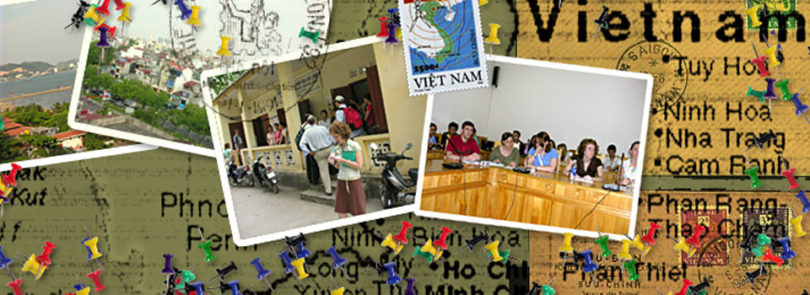Vietnam is hot and poor, and its view of America might not be flattering. It’s not an ideal vacation spot for many people.
But the war-ravaged Southeast Asian nation provided the perfect testing ground for Kelcie Fincham’s goal of becoming a public health worker. The three weeks she spent there with a University of Georgia study abroad program cemented her vision and gave her first-hand accounts of progress in struggling areas, she said.
“The main purpose (of the trip) was to give an overview of the different faces of public health that are taking place in Vietnam. What makes it a good site for that kind of trip is that it’s a so-called developing country and has some very educated people doing a lot of work there with very few resources,” she said.
Fincham and 14 other students, most majoring in pre-medical studies, were the inaugural portion of what Robert Galen, a professor in the college of public health, hopes turns into an annual program. Galen first lectured in Vietnam three years ago and immediately began building the foundations of contacts to start the program.
“Although half way around the world with a very different culture, history and resources, I was confident we could learn from each other,” he said.
“The massive public health problems of motor vehicle accidents and drownings and the unique problems posed by Agent Orange and unexploded land mines would provide a backdrop to expose global health issues. We could compare and contrast challenges as well as solutions to protecting the public’s health in both countries.”
Though the toll wreaked on Vietnamese soil during the war was harsh and embargos slowed its economy, relations between the countries are nearly unscathed and the people are working hard toward a better life. Now, with the groundwork laid for good relations, students might begin helping with day-to-day activities of Vietnamese medical centers as early as next year.
“It was a great way to start off. You don’t want to start out in a developing country without making strong connections first. So we didn’t do a lot of fieldwork, but it made me want to go back. I spoke with a lot of faculty there and they were very receptive to people coming back over and working…. If it happens, I’ll be excited, so I’m keeping in contact with them,” Fincham said.




